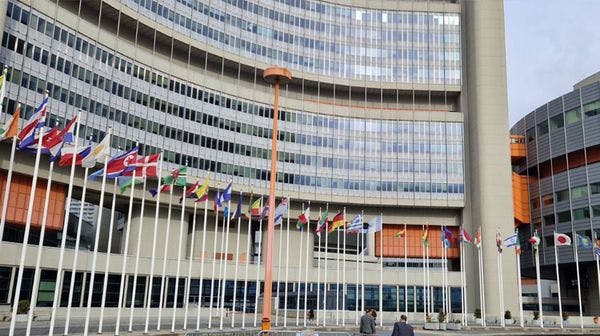Drug Reporter
Un mundo cansado de la prohibición sobre las drogas: Impresiones recogidas en la Comisión de Estupefacientes de la ONU
El equipo de Drugreporter informa sobre los aspectos más destacados de la 66ta sesión de la CND celebrada este año, en la cual varios Estados miembros se comprometieron a dejar atrás la prohibición y la "guerra contra las drogas". Más información, en inglés, está disponible abajo.
I used to think about the Commission on Narcotic Drugs as one of the dullest drug policy events of the year. A synod of the Church of Drug Prohibition, meeting annually at its cathedral in Vienna, to reiterate the dogmas of the Holy Drug Conventions, deeming all non-scientific and non-medical use of some pagan drugs illegal and sinful. It was a hostile environment for civil society. But I have to admit that this has been changing – thanks to civil society.
The opening plenary of this year’s 66th session was proof that the so-called Vienna Consensus, the agreement among member states that prohibition is the best way forward, has gone. It has died an agonising death. Instead of reiterating dogmas, many member states were challenging them. Some of the delegates did so with a passion quite unusual at the CND.
The vice-president of Colombia said in her speech that her country is tired of the war on drugs and is seeking new solutions, such as the regulation of cannabis and the coca leaf. The Bolivian delegate condemned what he called “six decades of colonisation of coca leaf”, a “sacred plant” for native people in the Andes region. A minister from Malta announced that his country has created legal access to cannabis for adults last year, with non-profit associations cultivating the plant for shared use.
A few years ago I would call these the “dissenting voices”, but now they are no longer a small, dissenting minority. They have become part of the mainstream. And these voices are now prevalent in regions where before we would only hear about tough-on-drugs policies. For example, we interviewed the Honourable Seth Kwame Acheampong, the Minister of State from Ghana, West-Africa, who explained to us that his country has decided to leave behind the old ways of harsh criminalisation of people who use drugs, and will provide access to harm reduction programs instead.
Of course there are still those countries that stay loyal to the dogmas of drug prohibition, and unfortunately the majority of the world’s population still lives in those countries. China and Iran, for example. And of course Russia, a country that is more isolated than ever at the UN, because of its aggression against Ukraine. The EU and civil society used the CND as a platform to protest against Putin’s war, with several member states condemning it for its intervention. The Eurasian Harm Reduction Association (EHRA) organised a side event on the war in Ukraine, and its effects on harm reduction services, in a room packed with delegates.
